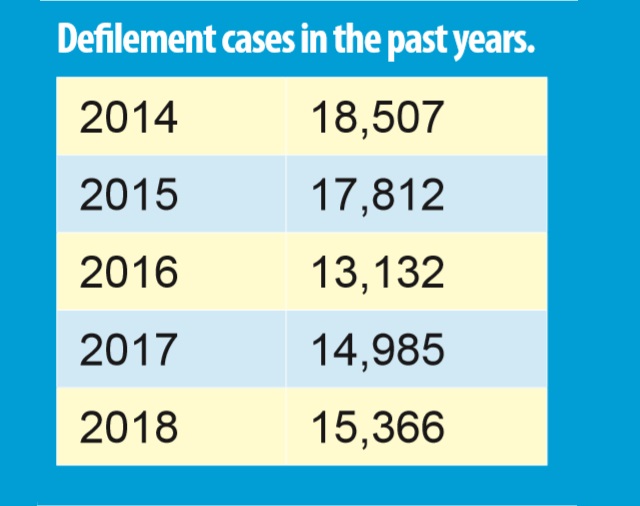
Defilement cases rise again
Kampala, Uganda | PATRICIA AKANKWATSA | Vanessa Nakasagga, 14, was home alone when Musa Ssemwanga a neighbor came into their house and performed sexual acts on her. She suffers epilepsy, a central nervous system (neurological) disorder in which brain activity becomes abnormal, causing seizures, periods of unusual behavior, or permanent brain damage. As a result, she is considered mentally ill.
She lives with her mother and sister, Brenda Nassuna Masajja in Makindye division of Kampala district. But many times she is left home alone. That is when Musa Ssemwanga, sneaks into the house and sexually molests her.
Ssemwanga has children and, during play time, Nakasagga was overheard telling them that she would stop playing with them since their father was doing bad things to her.
Musa’s crime was, however, discovered when her sister returned unexpectedly from collecting water and caught him in the act. He had pinned the girl down and was holding her mouth with one hand so that she would not scream.
On seeing Nassuna, he jumped off the victim, dressed and went out of the house promising to bring sugar cane for the two of them. But Nakasagga’s sister reported the incident to their mother immediately.
When this information came to the attention of their mother, she began searching for Musa. He went missing for about two days until he was arrested and taken to police from where he was charged. It was a rare positive ending to the crime of defilement cases that happen every single day in the country.
Many defilement cases; a crime in which a man performs a sexual act on a minor, go unreported.
Still, according to the annual police report 2018 released in May, 15,366 cases of defilement were reported in 2018. That was higher than the 14,985 cases in 2017.
The number of aggravated defilement cases was 3,780 and that of simple defilement was 11,586.
According to the Sexual Offenses Act, aggravated defilement is where the victim has been infected with HIV/Aids virus or is very young and has been defiled by a relative; whereas simple defilement is committed against victims between 14 and 18 years.
Of these, 115 were defiled by guardians, 92 by teachers (pupils), 90 by teachers (students) and 84 by parents. 201 were defiled by suspects with HIV and 90 were victims with disability who were raped.
Why the prevalence
Nicholas Opiyo of Chapter Four Uganda says that sexual and gender based violence has been on the rise and that defilement is just one form of sexual violence. He blames the rise in the crimes on overall changes occurring in communities.
“We don’t value every member of the society especially women. There are social cultural economic disparities that make women vulnerable. The question of economic empowerment of women, the question of justice system responding to the current problem. These cases are not given full attention,” he says.
Police Chief Political Commissioner, Asan Kasingye, argues that the rise in defilement cases in 2018 could also mean that the rate at which these cases are being reported has increased due to awareness raised by police and other stakeholders.
“In the recent past, police undertook some major reforms in the processes through which defilement cases go. This has eliminated issues that used to block these cases from either being reported to police or prosecuted,” he says.
Grace Akulo, the police director of criminal investigations says that decadency is increasingly eating up the moral fabric of society.
“Parents are also busy and children especially girls are left home with their brothers, uncles and relatives who defile them,” she says.
However Opiyo says that the only way to stop all this, society changing its attitude.
“Gender based violence is a big issue and it needs to be stopped. The only way to stop it is beginning with society itself. Respect every single member of society,” he says.

****
 The Independent Uganda: You get the Truth we Pay the Price
The Independent Uganda: You get the Truth we Pay the Price





